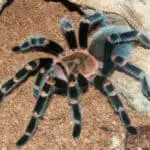Spiders get a bad rep. You go to bed, enjoy a good night’s sleep, and wake up ready to face the challenges of the day.
But your plans are thwarted. You find several little bites on your skin, but who is the culprit? Perhaps that little fellow that is hiding in the corner of your room.
Spiders do like to bite humans, don’t they? Many people think so, but as it stands, this may not necessarily be true.
Do spiders bite humans for no reason? Spiders do not bite humans for no reason. Most spiders do not have fangs big enough to even pierce through the human skin, and humans are not their natural food. However, spiders will bite humans if they have a reason to do it, for example, if they are provoked or feel threatened and cannot escape.
Are you curious to find out more about spiders and some common misconceptions about them? Also, some neat tricks and ideas on how to prevent spiders from biting you? Continue reading, below I share more information with you.
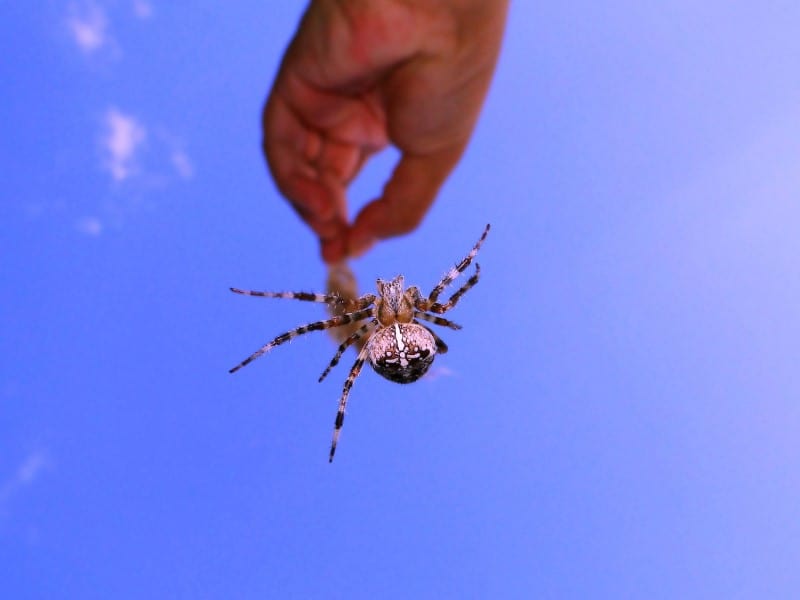
Why Do Spiders Bite Humans?
Spiders avoid anything that may kill them. This includes humans, animals, and even some types of insects. As a matter of fact, spiders are more scared of you than you are of them. And it is no overstatement if I say that spiders are scared of almost everything.
Just because they look intimidating, despite their small stature, and it is hard to catch on any emotions from them does not mean that they are the fearsome predator that we all think they are.
Even tarantulas, which have a fearsome reputation, will not bite a human without a good reason to do so.
Even though spiders from the tarantula family are some of the world’s biggest spiders, they are still very small compared to us, humans. This is why instinctively, they, too, would rather run from humans than try to bite them for no reason.
And this also applies to smaller spiders. They will not try to bite a human unprovoked. If we take a more objective look at how spiders act, we will see that they are more likely to run than engage with you.
Even those small jumping spiders, that may frequently scare people and have them thinking the spider is charging at them, are no different. They may seem to jump at you, but keep in mind that their sight is also not that good, so they may not really discern what they are jumping at. (Conversely, some people think jumping spiders, in particular, may have very good eyesight.)
Many spiders will seek a dark shadowy place where they can hide. Some like the camel spiders will only go out during the night, avoiding the sun as much as possible. As humans, we usually cast a big shadow that, in parts because of the bad eyesight some spiders have, may seem quite attractive and welcoming to them.
As those spiders look for a shadowy sheltering, they may, in their confusion, actually appear as if they are attacking us while, in reality, they are looking for a place to hide.
So if spiders are so afraid of us, why do they bite us?
If a spider is being cornered and has no way of escaping or is being crushed or harassed, it will most likely try to bite you as a means of defending itself. A spider may also bite you if you have made an unintentional contact with them. Their biting you is in self-defense and only as a result of feeling threatened in some way.
You see, spiders do not hunt humans. We are not their natural prey since they are not bloodsuckers like the mosquitoes, ticks, or mites.
But you might ask me, “Hey, isn’t there a species of spiders that do like human blood?” And you will be right. There is one species of spiders known as vampire spiders that do like eating human blood.
Vampire spiders are a part of the jumping spider family; they are small and usually attack mosquitoes that have bitten humans. The human blood does attract them; however, the vampire spiders are not capable of piercing through the human skin, so again, it is highly unlikely that even a vampire spider will bite you.
Although the majority of spiders are not dangerous, some are. Like the black widow spider. So will the black widow spider bite a human for no reason?
The same logic applies even to black widow spiders. They are not aggressive (actually a lot of people consider them to be very timid) and will not actively seek to bite you unless being provoked and feel threatened and have no way of escaping.
Also read Do Spiders Try to Get Revenge?
Do Spiders Intentionally Bite Humans?
Spiders will not intentionally bite a human unless provoked. Usually, spider bites happen by accident and due to people not looking or taking simple safety measures.
Some reasons why a spider will bite you are:
- If you accidentally touch them.
- If you slap, harass, or provoke the spider.
- If you put your hand (for example) in the spider’s web or habitat.
- If you try to crush the spider.
- If you try to put on a piece of clothing that has a spider trapped inside.
- If you try to trap or corner them, leaving them no way of retreating.
Do Spiders Bite Humans While They Sleep?
I have thought about it, and I am pretty sure you have as well. A spider crawling inside your bed and placing a few bites here and there on your skin.
A worrying thought, but one that may not necessarily be based in reality.
In the end it is a common myth.
It is extremely unlikely that a spider will intentionally crawl into your bed to bite you or crawl into your mouth.
As we have explored earlier in this article, spiders have no reason to bite us as this will not provide them with anything. We are not their natural food. So would you bite something that will most likely just crush you in one fell swoop? The answer is no, you wouldn’t.
Spiders do enjoy some benefits of living around humans, that is true, but they try to stay away from us. Think about it, where do you find spiders? They are usually in areas that are not used often, and there is not much human traffic.
A spider may find itself eventually in your bed as it forays and hunts for potential food. Although the chances are very low, it can happen if you let your cover touch the floor or sleep directly on the floor, for example.
So if a spider somehow finds itself on you as you sleep and you roll over and crush or swat it with your hand in your sleep, it can bite you. It is not something that cannot happen eventually, but it is, however, very unlikely.
Spiders will not usually get in your bed without a good reason for that. For example, this could happen if you have bed bugs, one of their natural preys, which is a more serious problem than the spider.
In any case, spiders are probably finding sleeping humans just as terrifying as fully awake humans.
Frequently people mistakenly think that spiders bite them while they sleep. In many cases, spiders are not the real culprit. The real culprit may be bed bugs, kissing bugs, mites, fleas, chiggers, even an MRSA Staph Infection.
What to Do If a Spider Bites You?
The vast majority of spider bites are not dangerous. Nevertheless, some can be depending on the species of the spider and whether or not you have an allergy.
There are a few things you can do if a spider has bitten you.
- Start by cleaning the wound. To clean the bite, use a mild soap and some water. After that, apply some antibiotic ointment or cream.
- To reduce the swelling and pain, make a cold compress using a towel or some cloth dampened with cold water. You can also fill it with ice or use an ice pack.
If the bite is on your arm or leg, make sure to keep it elevated.
If you don’t know what kind of spider bit you and whether it was a poisonous spider or if you suffer from abdominal cramping, intense pain, throwing up, fever, and stiffness, you should see a doctor. If the wound is growing, if it looks like a bullseye, or if it gets worse, you should also seek emergency care immediately.
Spider bites can also cause an allergic reaction in some people, which could be lethal.
How to Keep Spiders From Biting You?
There are several different things you can do to keep spiders from biting you.
- Don’t let spiders settle down in your home in the first place. If you feel bad killing them, taking a broom, scooping them up, and throwing them out of the window can be an effective way to keep spiders out of your home.
- DEET, Picaridin, and other scent-based spider repellents are very effective in keeping spiders away. Essential oils like eucalyptus and citronella oil can also be used.
- Make sure your door and window screens are well-installed and tight-fitting.
- Keep your bedsheets, bedspreads, and blankets away from the floor and the walls.
- When working, wear protective clothing.
- Do not touch, step, or get in places where you cannot see or inspect whether there may be a spider’s web.
- Make sure there is no food lying around, and your home is kept clean and clutter-free.
- Keep other bugs that spiders may feed on out of your home.
- Do not keep trash in your home for a long time or use a bin with a tight-fitting lid.
Following those tips, you can reduce the chances of a spider biting you to a minimum.

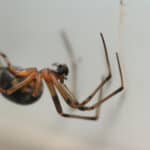

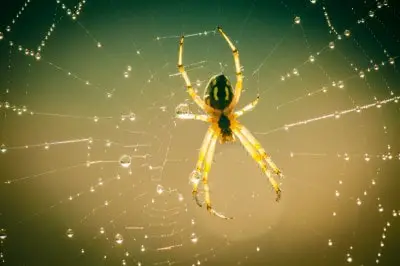
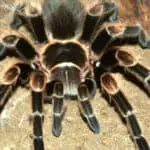
![Do Turtles Sleep Underwater? [Truth Revealed] Do Turtles Sleep Underwater](https://coolpetsadvice.com/wp-content/uploads/2021/04/Do-Turtles-Sleep-Underwater-400.jpg)
